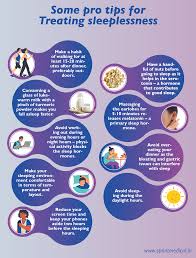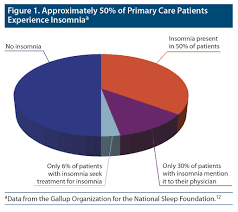The Power of Natural Remedies for Insomnia
Insomnia, the inability to fall asleep or stay asleep, can be a frustrating and debilitating condition that affects many individuals. While there are pharmaceutical options available, more people are turning to natural remedies to promote better sleep without the risk of side effects.
Establish a Bedtime Routine
Creating a consistent bedtime routine can signal to your body that it’s time to wind down and prepare for sleep. This can include activities like reading a book, taking a warm bath, or practicing relaxation techniques.
Limit Caffeine and Alcohol Intake
Caffeine and alcohol can disrupt your sleep cycle and make it harder to fall asleep. Try to avoid consuming these substances close to bedtime to improve your chances of getting a restful night’s sleep.
Create a Sleep-Inducing Environment
Your bedroom should be conducive to sleep – cool, dark, and quiet. Invest in comfortable bedding, block out light with curtains or an eye mask, and consider using white noise machines or earplugs if you’re sensitive to noise.
Herbal Remedies
Herbal supplements like valerian root, chamomile tea, and lavender oil have been used for centuries to promote relaxation and improve sleep quality. These natural remedies can help calm your mind and body before bedtime.
Mind-Body Techniques
Practices like yoga, meditation, and deep breathing exercises can help reduce stress and anxiety levels that may be contributing to your insomnia. Incorporating these techniques into your daily routine can lead to better sleep patterns over time.
Consult with a Healthcare Professional
If your insomnia persists despite trying natural remedies, it’s important to consult with a healthcare professional. They can help identify any underlying issues that may be causing your sleep disturbances and recommend appropriate treatment options.
By incorporating these natural remedies into your daily routine and making lifestyle changes that promote better sleep hygiene, you can take control of your insomnia and enjoy more restful nights naturally.
Five Natural Strategies to Combat Insomnia: Remedies, Supplements, and Lifestyle Adjustments for Better Sleep
- What are some natural remedies for treating insomnia?
- How can I improve my sleep quality without medication?
- Are there any herbal supplements that can help with insomnia?
- What lifestyle changes can I make to promote better sleep?
- Do mind-body techniques like yoga and meditation help with insomnia?
What are some natural remedies for treating insomnia?
When exploring natural remedies for treating insomnia, several options can be beneficial in improving sleep quality. Establishing a consistent bedtime routine, such as engaging in calming activities before sleep, can signal the body to relax and prepare for rest. Herbal remedies like chamomile tea or lavender oil are known for their soothing properties that can promote relaxation. Mind-body techniques such as meditation or deep breathing exercises help reduce stress and anxiety levels, contributing to better sleep patterns. Creating a sleep-inducing environment in the bedroom, including optimizing lighting and noise levels, can also aid in achieving a peaceful night’s sleep. By incorporating these natural remedies into daily habits, individuals experiencing insomnia may find relief and enhance their overall well-being.
How can I improve my sleep quality without medication?
Improving sleep quality without medication is possible by incorporating natural remedies and lifestyle changes into your routine. Establishing a consistent bedtime routine, creating a sleep-inducing environment, limiting caffeine and alcohol intake, trying herbal remedies like chamomile tea or lavender oil, practicing mind-body techniques such as yoga or meditation, and seeking professional guidance if needed are all effective ways to enhance your sleep without relying on medication. By prioritizing good sleep hygiene and making small adjustments to your daily habits, you can promote better sleep quality and overall well-being naturally.
Are there any herbal supplements that can help with insomnia?
Many individuals wonder about the effectiveness of herbal supplements in treating insomnia. Herbal remedies such as valerian root, chamomile tea, and lavender oil are popular choices that have been used for centuries to promote relaxation and improve sleep quality. These natural supplements are known for their calming properties and ability to help individuals unwind before bedtime. While research on the efficacy of herbal supplements for insomnia is ongoing, many people find relief from their sleep disturbances by incorporating these natural remedies into their bedtime routine. It’s important to consult with a healthcare professional before starting any new supplement regimen to ensure they are safe and appropriate for your individual needs.
What lifestyle changes can I make to promote better sleep?
Making lifestyle changes is key to promoting better sleep and managing insomnia. Simple adjustments like establishing a consistent bedtime routine, limiting caffeine and alcohol intake, creating a sleep-friendly environment in your bedroom, incorporating relaxation techniques such as meditation or deep breathing exercises, and engaging in regular physical activity can all contribute to improved sleep quality. Additionally, practicing good sleep hygiene by avoiding screens before bedtime, maintaining a comfortable sleeping temperature, and ensuring your mattress and pillows are supportive can help create the ideal conditions for a restful night’s sleep. By making these lifestyle changes, you can enhance your overall well-being and enjoy more restorative sleep naturally.
Do mind-body techniques like yoga and meditation help with insomnia?
Mind-body techniques such as yoga and meditation have been shown to be effective natural remedies for insomnia. These practices focus on calming the mind, reducing stress levels, and promoting relaxation, all of which are essential for achieving restful sleep. Yoga incorporates gentle movements, deep breathing, and mindfulness to help release tension in the body and prepare it for rest. Meditation, on the other hand, encourages mental clarity and emotional balance, making it easier to quiet the mind before bedtime. By incorporating yoga and meditation into your daily routine, you can create a sense of calmness that can positively impact your sleep patterns and overall well-being.



